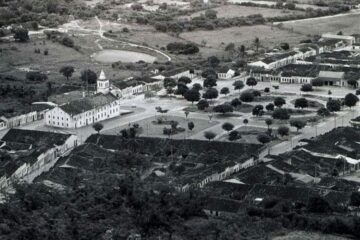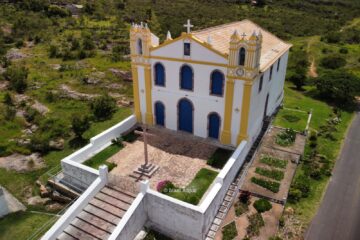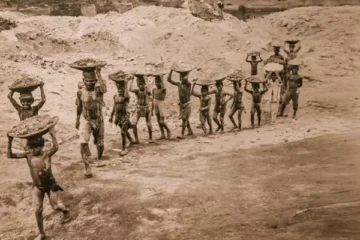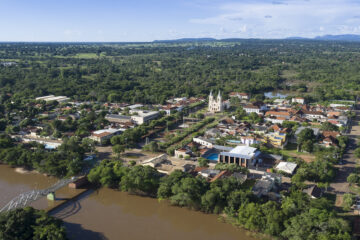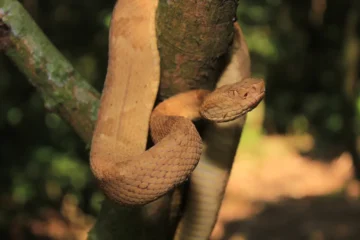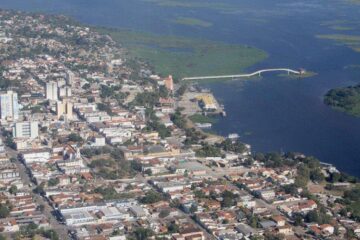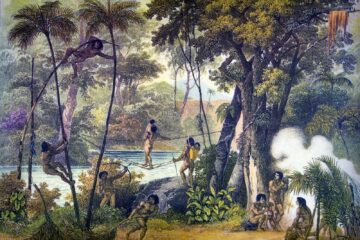Este post também está disponível em:
Português
English

Gal Costa, stage name Maria da Graça Costa Penna Burgos, (Salvador, September 26, 1945) is a Brazilian singer who has sold about 500 million records throughout her career.
Gal Costa is the daughter of Mariah Costa Pena, who died in 1993 and was her great promoter, and Arnaldo Burgos.
Her mother used to say that during her pregnancy she would spend hours listening to classical music, as if in a ritual, with the intention that this procedure would influence the pregnancy and make the child that was to be born, in some way, a musical person.
Gal Costa never met her father, who died when she was about 15. Around 1955 she became friends with her sisters Sandra and Dedé (Andréia) Gadelha, future wives of composers Gilberto Gil and Caetano Veloso, respectively.
In 1959, Gal Costa heard singer João Gilberto singing Chega de Saudade (Tom Jobim/Vinícius de Morais) on the radio for the first time; João also had a major influence on the career of the singer, who also worked as a clerk in Salvador’s main record store at the time, Roni Discos. In 1963, she was introduced to Caetano Veloso by Dedé Gadelha, and from there began a great friendship and deep mutual admiration that continues to this day.
Video about Gal Costa’s biography

Biografia da cantora Gal Costa
Career of Gal Costa
Gal Costa debuted alongside Caetano Veloso, Gilberto Gil, Maria Bethânia, Tom Zé and others, the show Nós, por exemplo (August 22, 1964), which inaugurated the Vila Velha Theater in Salvador. That same year he took part in Nova Bossa Velha, Old Bossa Nova, at the same venue and with the same partners. She left Salvador to live at her cousin Nívea’s house in Rio de Janeiro, following in the footsteps of Maria Bethânia, who had burst onto the scene as a singer in the show Opinião.
The first recording of Gal Costa was on Maria Bethânia’s debut album (1965): the duo Sol Negro (Caetano Veloso), followed by the first compact, with the songs Eu vim da Bahia, by Gil, and Sim, foi você, by Caetano – both released by RCA, which later became BMG (currently Sony BMG) – a label to which Gal would return in 1984, with the album Profana. At the end of the year she met João Gilberto in person. She participated in the I International Song Festival, in 1966, interpreting the song Minha senhora (Gilberto Gil and Torquato Neto), which did not get a place.
The first LP of Gal Costa was released in 1967, alongside Caetano Veloso, Domingo, by Philips, which later became Polygram (now Universal Music), remaining in this label until 1983. The song “Coração vagabundo”, by Caetano Veloso, was a great success on this album. She also participated in the III Festival of Brazilian Popular Music, performing the songs Bom dia (Gilberto Gil/Nana Caymmi) and Dadá Maria (Renato Teixeira), the latter in a duet with Sílvio César at the Festival and with Renato Teixeira in the recording.
In 1968 Gal Costa participated in the album Tropicália ou Panis et Circencis (1968), with the songs Mamãe coragem (Caetano Veloso and Torquato Neto), Parque industrial (Tom Zé) and Enquanto seu lobo não vem (Caetano Veloso), besides Baby (Caetano Veloso), her first great solo hit, which became a classic. In the same year, he participates in the III International Song Festival (TV Globo), defending the song Gabriela Mais Bela, (Roberto Carlos and Erasmo Carlos). In November, she took part in the IV Festival da Record defending the song Divino maravilhoso (Caetano and Gil). She released her first solo album, Gal Costa (1969), which in addition to “Baby” and “Divino maravilhoso” features “Que pena (He no longer likes me)” (Jorge Benjor) and “Não identificado” (Caetano Veloso), all big hits. In the same year she recorded her second solo album, “Gal”, which brings the hits “Meu nome é Gal” (Roberto and Erasmo Carlos) and “Cinema Olympia” (Caetano Veloso), from this album generated the show Gal!
In 1970 Gal Costa traveled to London to visit Caetano Veloso and Gilberto Gil, exiled by the military dictatorship, and from that trip brought some songs included in her next album, “Legal”. From the repertoire of this work, the songs “London London” (Caetano Veloso) and “Falsa baiana” (Geraldo Pereira) were very successful.
In 1971, Gal Costa recorded a double compact disc that was very important in her career, with the great hits “Sua estupidez” (Roberto and Erasmo Carlos) and “Você não entende nada” (Caetano Veloso). In that same year she performs one of the most important concerts of Brazilian music, “Fa-Tal”, directed by Waly Salomão and recorded live generated the album that until today is considered by many critics as the most important of her career, “Fa-Tal / Gal a Todo Vapor”, which brings great hits like “Vapor barato” (Jards Macalé – Waly Salomão), “Como 2 e 2” (Caetano Veloso) and “Pérola negra” (Luiz Melodia).
In 1973 Gal Costa records the album “Índia”, which brings the hits “Índia” (J. A. Flores – M. O. Guerreiro – version José Fortuna) and “Volta” (Lupicínio Rodrigues), and from this album she makes another very successful show, also directed by Waly Salomão, “Índia”. That same year she participated in the Phono 73 Festival, which generated three records, where Gal successfully recorded the songs “Trem das onze” (Adoniran Barbosa) and “Oração de Mãe Menininha” (Dorival Caymmi), in a duet with Maria Bethânia.
In 1974 Gal Costa recorded the album “Cantar”, directed by Caetano Veloso, which brings the hits “Barato total” (Gilberto Gil), “Flor de maracujá” and “Até quem sabe” (both by João Donato and Lysia Enio) and “A rã” (João Donato and Caetano Veloso). From this album came the show “Cantar”, which was not well received by Gal’s public, as it was a very soft album, contrasting with the strong image that the singer had created from the tropicalist movement.
In 1975, Gal Costa was a huge success when she recorded the song “Modinha para Gabriela” (Dorival Caymmi) for the opening of the Rede Globo soap opera “Gabriela”. From that year is also the hit “Teco teco” (Pereira da Costa – Mílton Vilela), released in compact. The great success of Caymmi’s song motivated the recording of the album “Gal Canta Caymmi”, released in 1976, which brings the hits “Só louco”, “Vatapá”, “São Salvador” and “Dois de fevereiro”, all by Dorival Caymmi.
That same year, Gal Costa, alongside her colleagues Gilberto Gil, Caetano and Maria Bethânia, participated in the show “Doces Bárbaros”, the name of the group baptized and idealized by Bethânia, a show that toured Brazil and generated the album Doces Bárbaros.
The album is considered a masterpiece; despite this, curiously at the time of its release (1976) it was harshly criticized. Doces Bárbaros was a typical hippie band of the 70s and, over the years, was the subject of a movie, DVD, plot of the samba school GRES Estação Primeira de Mangueira in 1994 with the plot Atrás da verde-e-rosa só não vai quem já morreu, they have already commanded trio elétrico in the carnival of Salvador, shows on Copacabana beach and a presentation for the Queen of England. Initially the album was to be recorded in the studio, but at the suggestion of Gal and Bethânia, it was the show that was recorded on disk, with four of those songs recorded shortly before in the double studio compact, with the songs Esotérico, Chuckberry fields forever, São João Xangô Menino and O seu amor, all rare recordings.
In 1977 Gal Costa releases the album “Caras & Bocas”, which features the hits “Tigresa” (Caetano Veloso) and “Negro amor (It’s all over now, baby blue)”. From this album came the show “Com a Boca no Mundo”.
In 1978 Gal Costa released what would be the first gold record of her career, “Água Viva”, which brought the hits “Folhetim” (Chico Buarque), “Olhos verdes” (Vicente Paiva) and “Paula e Bebeto” (Mílton Nascimento – Caetano Veloso). From this album came the show “Gal Tropical”, where Gal Costa turned her career around, drastically changing her image, going from a hippie muse to a more mature singer. The show “Gal Tropical” was a huge success with the public and critics, and generated the album “Gal Tropical”, in which Gal sang some of the greatest hits of her career, such as “Balancê” (João de Barro – Alberto Ribeiro), “Força estranha” (Caetano Veloso), “Noites cariocas” (Jacob do Bandolim – Hermínio Bello de Carvalho), as well as the re-recordings of the great hits “Índia” and “Meu nome é Gal”.
From the 1960s, when the specials of the Festival of Brazilian Popular Music (TV Record) appeared, until the end of the 1980s, Brazilian television was marked by the success of the shows broadcast; presenting the new talents registered record ratings. Gal Costa took part in the special Mulher 80 (Rede Globo), one of these defining moments in television. The program aired a series of interviews and musicals whose theme was women and the discussion of the female role in society at the time, addressing this theme in the context of national music and the undeniable preponderance of female voices, with Maria Bethânia, Gal Costa, Elis Regina, Fafá de Belém, Zezé Motta, Marina Lima, Simone Bittencourt de Oliveira, Rita Lee, Joanna and the special appearances of actresses Regina Duarte and Narjara Turetta, who starred in the series Malu Mulher.
In 1980 Gal Costa recorded the album “Aquarela do Brasil”, focused on the work of composer Ary Barroso, and which brought hits such as “É luxo só” (Ary Barroso – Luiz Peixoto), “Aquarela do Brasil”, “Na Baixa do Sapateiro”, “Camisa amarela” and “No tabuleiro da baiana” (all by Ary Barroso).
In 1981 Gal Costa premiered the show “Fantasia”, a great critical failure, but which generated one of the most successful albums of her career, both public and critical, the award-winning “Fantasia”, which brought several hits, such as “Meu bem meu mal”, “Massa real” (both by Caetano Veloso), “Açaí”, “Faltando um pedaço” (both by Djavan), “O amor” (Caetano Veloso – Ney Costa Santos – Vladmir Maiakovski), “Canta Brasil” (David Nasser – Alcir Pires Vermelho) and “Festa do interior” (Moraes Moreira – Abel Silva). With the great success of the album, Gal invited Waly Salomão to direct the show “Festa do Interior” which redeemed her from the great failure of the show “Fantasia”.
In 1982 Gal Costa recorded another successful album, “Minha Voz”, in which the recordings of “Azul” (Djavan), “Dom de iludir”, “Luz do sol” (both by Caetano Veloso), “Bloco do prazer” (Moraes Moreira – Fausto Nilo), “Verbos do amor” (João Donato and Abel Silva) and “Pegando fogo” (Francisco Mattoso – José Maria de Abreu) stood out.
In 1983 Gal recorded another commercially successful album, “Baby Gal”, which also became a show, and which brought the hits “Mil perdões” (Chico Buarque), “Rumba louca” (Moacyr Albuquerque – Tavinho Paes), besides the re-recording of “Baby”.
Originally conceived for the ballet theater of the Balé Teatro Guaíra (Curitiba, 1982), the show O Grande Circo Místico was released in 1983. Gal Costa was part of the select group of MPB artists who traveled the country presenting the project, one of the largest and most complete theatrical shows, to an audience of more than 200,000 people, in almost 200 presentations. Gal Costa interpreted the song A História de Lili Braun, set to music by the duo Chico Buarque and Edu Lobo. The show tells the love story between an aristocrat and an acrobat and the saga of the Austrian family that owned the Great Knie Circus, which roamed the world in the first decades of the century.
In 1984 Gal left the Philips label and signed a contract with RCA, where she recorded the album “Profana”, which brought the hits “Chuva de prata” (Ed Wilson – Ronaldo Bastos), “Nada mais (Lately)” (Stevie Wonder – version: Ronaldo Bastos) and “Vaca profana” (Caetano Veloso).
In 1985 Gal Costa recorded the album “Bem Bom”, with the hits “Sorte” (Celso Fonseca – Ronaldo Bastos), sung in a duo with Caetano Veloso, and “Um dia de domingo” (Michael Sullivan – Paulo Massadas), in a duo with Tim Maia.
She also used the post-dictatorship and feminism engagement line to sing in the chorus of the Brazilian version of We are the world, the American hit that gathered voices and raised funds for Africa or USA for Africa. The project Nordeste já (1985), embraced the cause of the Northeastern drought, uniting 155 voices in a collective creation, came up with the compact, of collective creation, with the songs Chega de mágoa and Seca d’água. Praised for the competence of the individual interpretations, it was nevertheless criticized for the inability to harmonize the voices and the framing of each of them in the chorus.
In a move that surprised many of her fans, in February of the same year she posed nude for issue 127 of the now defunct magazine Status, a few months before her fortieth birthday.
In 1987, she released the album and show Lua de Mel Como o Diabo Gosta, a critical failure, but which brought some more hits to the singer’s career: “Lua de mel” (Lulu Santos), “Me faz bem” (Mílton Nascimento – Fernando Brant) and “Viver e reviver (Here, there, and everywhere)” (Lennon – McCartney – version: Fausto Nilo).
In 1988 Gal recorded with great success the song “Brasil” (Cazuza – Nilo Romero – George Israel) for the opening of the Rede Glovo soap opera “Vale Tudo”.
In 1990 she recorded the album “Plural”, which brings the hits “Alguém me disse” (Jair Amorim – Evaldo Gouveia), “Nua idéia” (João Donato – Caetano Veloso) and “Cabelo” (Jorge Benjor – Arnaldo antunes).
In 1992 she released the album “Gal”, with a repertoire largely taken from the show “Plural”, and from which the song “Caminhos cruzados” (Tom Jobim – Newton Mendonça) was a success.
In 1994, Gal Costa met with Gil, Caetano and Bethânia, in the court of the samba school Mangueira, for the show “Doces Bárbaros na Mangueira”, which celebrated the 18th anniversary of the Doces Bárbaros.
In 1994 Gal Costa released the award-winning album “O sorriso do gato de Alice”, produced by Arto Lindsay, with the hit “Nuvem negra” (Djavan). From this album came the show of the same name, directed by Gerald Thomas, which caused controversy because Gal sang the song “Brasil” with her breasts naked.
In 1995, Gal Costa released “Mina d’água do meu canto”, featuring only compositions by Chico Buarque and Caetano Veloso, and from which the song “Futuros amantes” (Chico Buarque) was a success.
In 1997, she recorded the CD “Acústico MTV”, a sales success, in which she sang several hits of her career and successfully released a new version of “Lanterna dos Afogados”, singing alongside the author of the song, Herbert Vianna.
In 1998, Gal Costa recorded the CD “Aquele frevo axé”, with the hit “Imunização racional (Que beleza)” (Tim Maia).
In 1999, Gal Costa released a double live album “Gal Costa Canta Tom Jobim Ao Vivo”, realizing the maestro’s project, which was to make an album with the singer, although alone.
In 2001, she recorded the CD “Gal de tantos amores”, containing the song “Caminhos do mar” (Dorival Caymmi, Danilo Caymmi and Dudu Falcão). That same year, she was included in the Carnegie Hall of Fame (the only Brazilian singer to participate in the Hall), after participating in the show “40 years of Bossa Nova”, in honor of Tom Jobim, alongside César Camargo Mariano and other artists.
In 2002, she released the CD “Bossa Tropical”, in which she recorded the track “Socorro” (Alice Ruiz and Arnaldo Antunes), a hit originally recorded by singer Cássia Eller.
In 2003, Gal Costa released the CD “Todas as coisas e eu”, containing MPB classics, such as “Nossos momentos” (Haroldo Barbosa – Luis Reis), which was a success.
In 2005, Gal Costa released the CD “Hoje” by Trama, produced by César Camargo Mariano, where Gal gathered several new songs by composers little known to the general public, with the highlight “Mar e sol” (Carlos Rennó and Lokua Kanza).
In 2006, Gal Costa performs at the Blue Note concert hall in New York, a show that is recorded and released in September on the CD “Gal Costa Live At The Blue Note”, originally released in the United States and Japan and only in 2007 in Brazil. Still in 2006, she releases the CD and DVD “Gal Costa Ao Vivo”, recorded during the season of the show “Hoje”.
Biography of the singer Gal Costa
